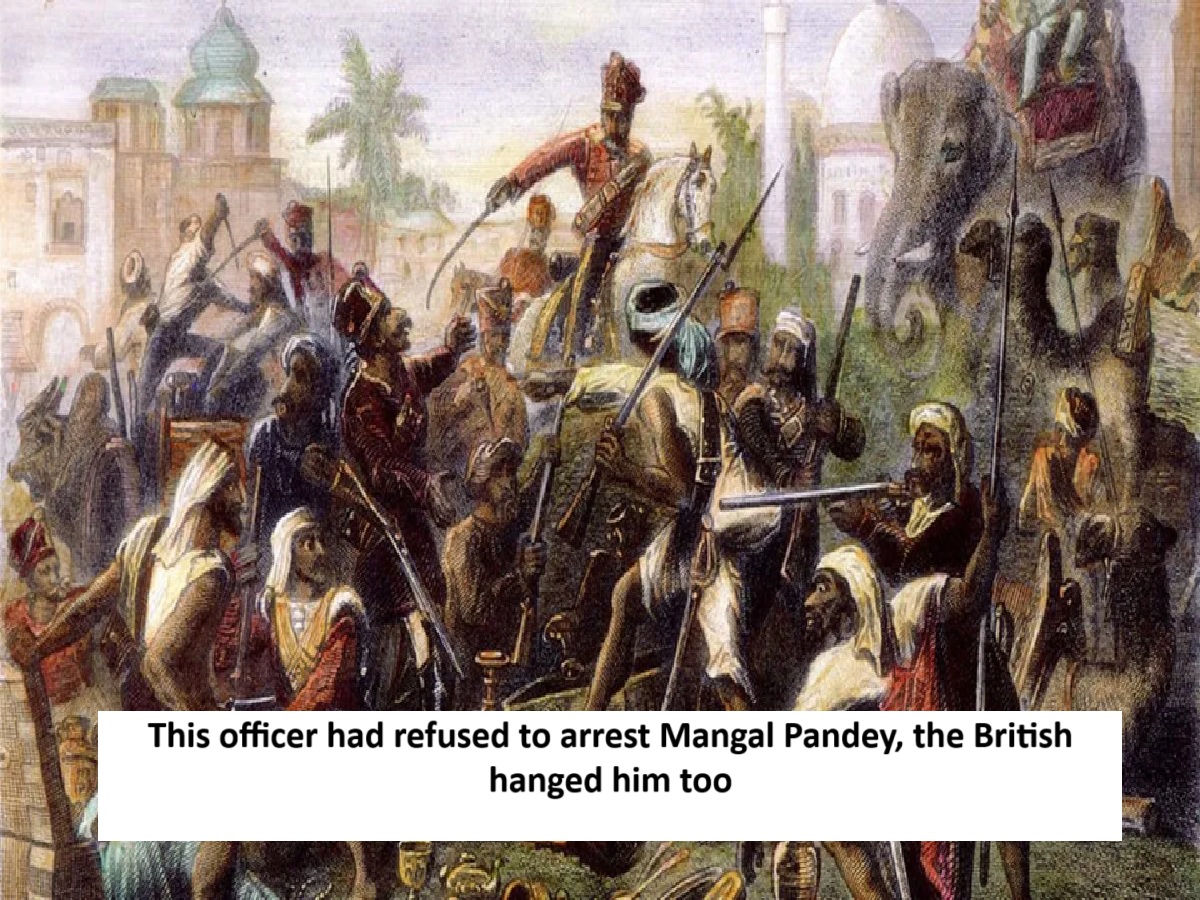
News Topical, Digital Desk : Many heroes put their lives at stake in the fight for India's independence, among whom Mangal Pandey's name is taken first. Mangal Pandey was the person who lit the spark of the 1857 revolution and challenged the British rule. His fellow Jamadar Ishwari Prasad also played an important role in this war, who flatly refused to arrest Mangal Pandey. But he had to pay the price of this loyalty by sacrificing his life. Come, today we tell you about the story of Mangal Pandey's revolution and Ishwari Prasad's sacrifice.
Mangal Pandey was born in a Brahmin family
Mangal Pandey was born on 19 July 1827 in a Brahmin family in Nagwa village of Ballia district of Uttar Pradesh. In 1849, he became a soldier in the 34th Bengal Native Infantry of the British East India Company. At that time, the British had established their rule in India, but their atrocities and policies were causing anger among the Indian soldiers. In 1857, the British introduced the new Enfield rifle, and a rumor spread that its cartridges contained cow and pig fat. This was a religious insult for Hindu and Muslim soldiers, because the cartridges had to be bitten with the mouth.
Mangal had attacked the British officers
Mangal Pandey did not tolerate this insult and openly rebelled in Barrackpore, West Bengal on 29 March 1857. He incited his fellow soldiers to take up arms against the British in a crowded parade. It is said that Mangal Pandey, in a drunken state, attacked the British officers on the parade ground with his loaded musket. He fired a shot at Lieutenant Baugh, which hit his horse and he fell to the ground. After this Mangal Pandey attacked Baugh with a sword and injured him. Sergeant-Major Hugheson also became a victim of his sword.
Sheikh Paltu had tried to stop Mangal
A soldier Sheikh Paltu tried to stop Mangal, but the rest of the soldiers did not support him. When General Hearsey arrived at the spot with his sons, Mangal Pandey tried to shoot himself by placing the mouth of his gun on his chest, but he did not die. After this he was arrested. In the court martial on 6 April 1857, Mangal Pandey clearly said that he did this rebellion on his own will and no one else was involved in it. He was hanged on 8 April 1857. His martyrdom ignited the fire of rebellion in the whole country, which later came to be known as the Revolution of 1857.
Ishwari Prasad did not obey the officer's orders
Talking about Ishwari Prasad, he was a Jamadar (Junior Commissioned Officer) in the 34th Bengal Native Infantry. He was a loyal soldier, but his loyalty was also wavering due to the policies of the British. When Mangal Pandey rebelled on 29 March 1857, Sergeant Major Hughes ordered Ishwari Prasad to arrest him. However, Ishwari Prasad replied that he could not capture Mangal alone, because the rest of his soldiers were not present there. This refusal was not liked by the British, because they felt that Ishwari Prasad deliberately supported Mangal.
Testimony and hanging of Sikh soldiers
This decision of Ishwari Prasad clearly showed his loyalty and the anger that was raging among the soldiers. 3 Sikh soldiers testified that Ishwari Prasad had ordered the quarter guard not to arrest Mangal. On the basis of this testimony, the British also convicted Ishwari Prasad of rebellion and hanged him on 21 April 1857. Ishwari Prasad's punishment further angered the soldiers. The British disbanded the entire 34th Regiment on 6 May 1857, because they believed that the soldiers failed to stop Mangal Pandey.
What is the legacy of Mangal Pandey?
Mangal Pandey 's bravery gave birth to the revolution of 1857, which is called India's first freedom struggle. His martyrdom awakened the spirit of freedom among the soldiers and common people. This step of Mangal Pandey ignited the spark of rebellion not only in Barrackpur but in the whole of North India. On 10 May 1857, the soldiers killed their British officers in Meerut and marched towards Delhi. In this way, the sacrifice of Mangal Pandey and Ishwari Prasad played an important role in getting the freedom struggle of 1857 a place in the history books.
--Advertisement--

 Share
Share



